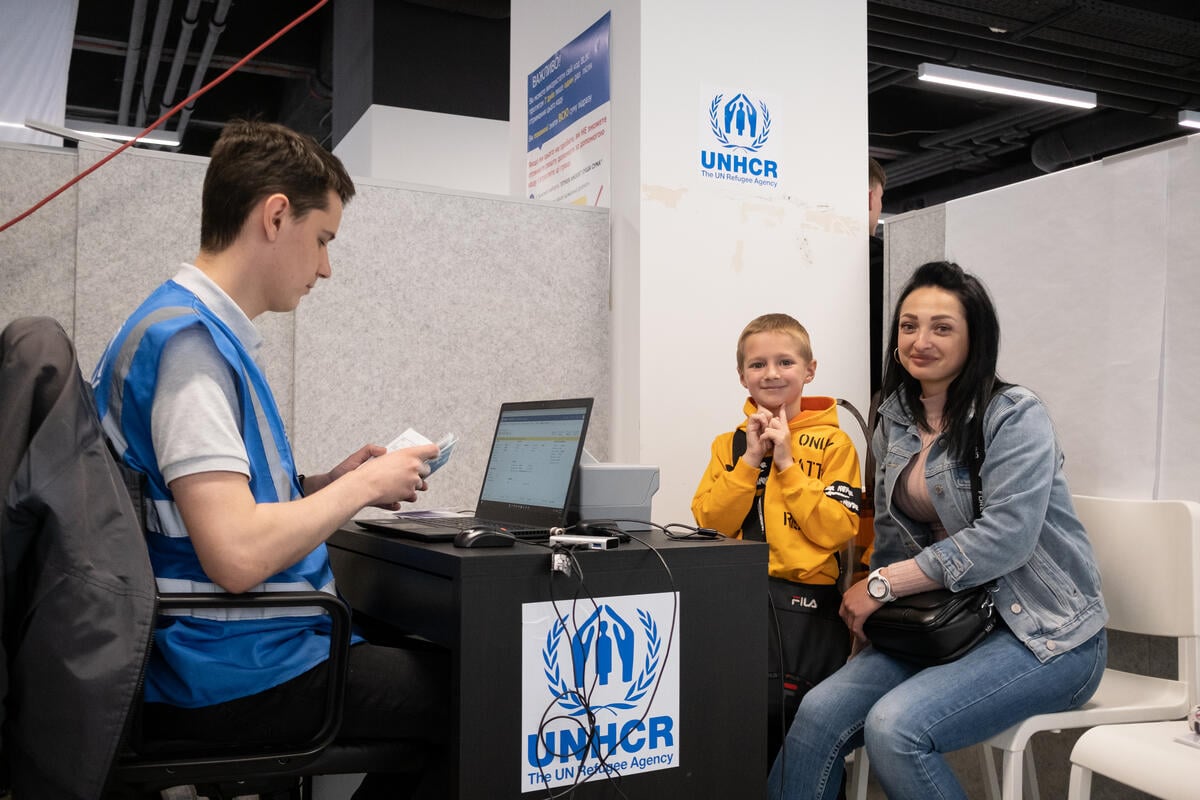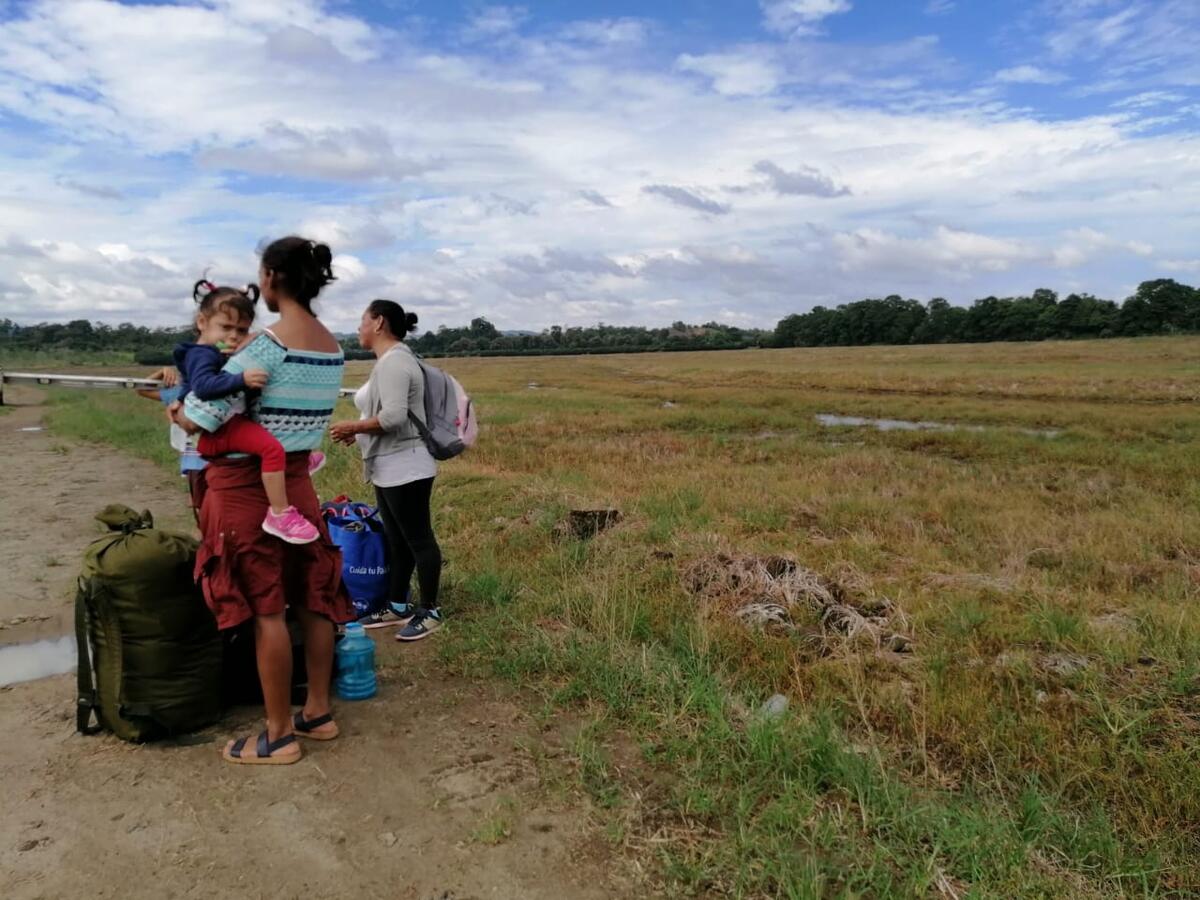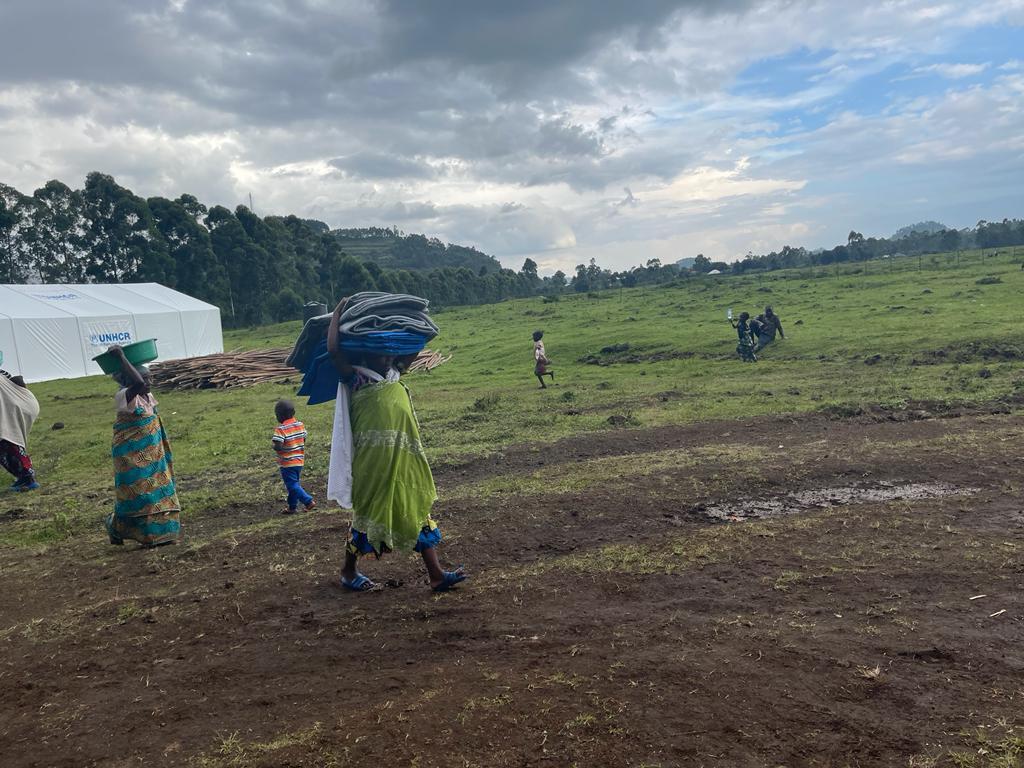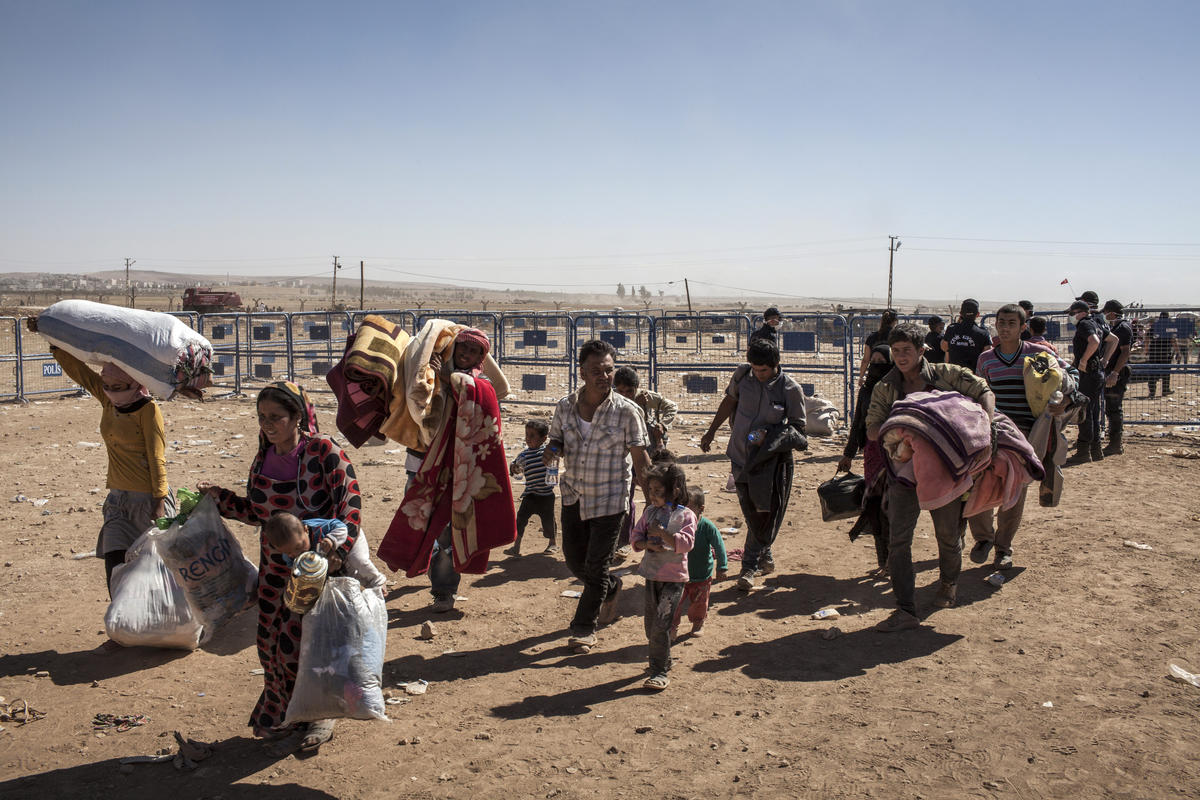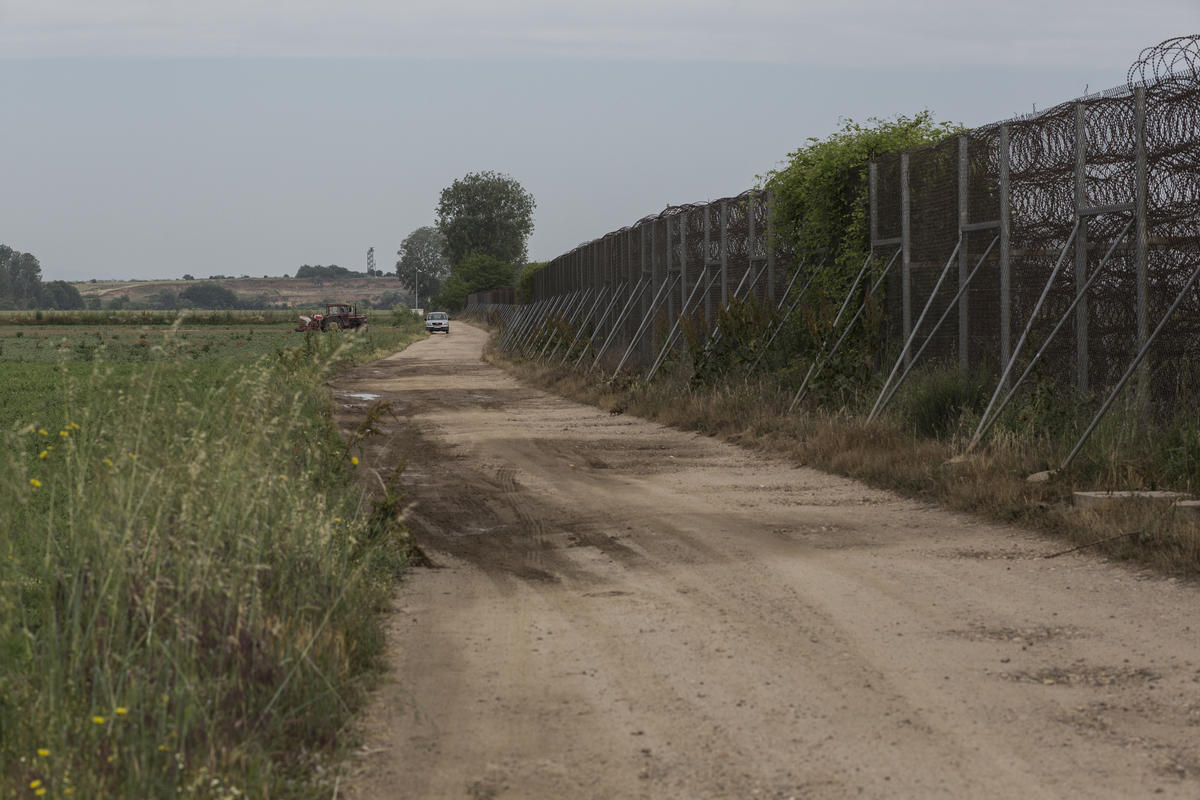Ukraine offers new home for asylum seekers
Ukraine offers new home for asylum seekers
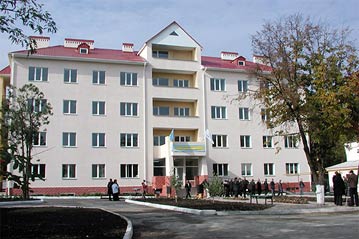
ODESSA, Ukraine, Dec 2 (UNHCR) - As the standoff continues over the Ukrainian presidential elections, another group of people in the country - who have as yet no right to vote - are facing dilemmas of a different kind.
Hura is a 24-year-old Somali asylum seeker. She was detained by the Ukrainian authorities in the western region of Volyn when she tried leave for Poland, and was transferred to an accommodation centre in Odessa. She wants to learn Russian so that she can talk to the centre management and be less dependent on a male interpreter from her group. However, she does not have money to take a bus to another refugee centre where she can get free lessons, and is afraid of "people in uniforms". Whenever the police check her documents, she remembers her weeks of detention in Volyn.
Seven-year-old Modesto faces a different predicament. The Afghan girl did not speak a word of Ukrainian or Russian when she first went to primary school in Odessa. Now she's the official interpreter for her parents and older brothers, who work at the local market. But her family is afraid their asylum claims will be rejected by the government. "It is not yet safe for us to return. Our village is in ruins. Modesto will never have a chance to attend school there," said her father, Mirza.
Amid the uncertainty over their future, the one thing Hura and Modesto know for sure is that they have a home in Odessa, at a recently-opened accommodation centre for asylum seekers.
Opened in late October, the centre was funded by the Ukrainian government and the European Union-TACIS (Technical Assistance for the Commonwealth of Independent States) project, "Strengthening Asylum in Ukraine and Moldova". UNHCR oversaw the construction process. The four-storey building, which can house up to 250 asylum seekers as they wait for decisions on their refugee status, is a welcome addition to an existing temporary centre that can only accommodate 50 people.
Between 1,200 and 1,400 people apply for asylum in Ukraine every year. Those who do not manage to get a place in the accommodation centre end up staying with relatives or friends in overcrowded apartments. Others live in the streets unless assisted by UNHCR or other national charitable organisations.
For asylum seekers, the initial period of their stay in a country is a matter of survival, said UNHCR programme officer Stephanie Rinville. "The new centre provides to asylum seekers not only temporary accommodation and basic assistance, but also an opportunity to adapt and find their place in a host society," she added.
For now, Hura and her friend Hadra, 18, have settled into their new home, using flour, oil and vegetables provided by the centre to cook for themselves and the other Somalis. Modesto, too, wasted no time in finding friends at the centre - fellow asylum-seeker children of different nationalities who quickly found a common language to play in.
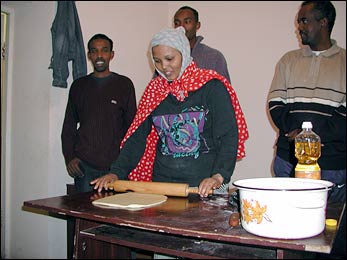
Run by the government, the centre boasts bedrooms, bathrooms, kitchens, a small medical station as well as play rooms for children. It also houses the offices of the Odessa asylum authorities and of UNHCR's non-governmental partner, South Ukrainian Centre of Young Lawyers, which provides free legal counselling and representation to the centre's residents. Basic assistance provided at the centre includes food, hygiene items, bed linen, towels and cooking sets.
However, the asylum seekers' problems do not end when they arrive at the centre. Language remains a big obstacle. Those who speak a bit of Russian immediately try to find a temporary job in Odessa, but the majority can hardly communicate with asylum authorities or the centre's management. Currently, the centre does not offer language classes, so residents who want to take free lessons conducted by the non-governmental organisation, Sympathy, have to do so at a refugee community centre in another district of Odessa. However, due to the government's limited resources, many asylum seekers like Hura cannot afford to travel there.
Nonetheless, the centre's residents live better than most other asylum seekers and even some recognised refugees. Asylum seekers who stay outside the centre receive no assistance from the government, while refugees receive a one-time welfare payment of about $3 upon recognition.
"Funds provided by the government to the centre are very limited and we have to accommodate the most vulnerable new arrivals. But at the same time it's very difficult to evict families with children after they have been granted refugee status. They have nowhere to go," noted Vadim Veprikov, the centre's director.
Life after the centre can be hard, said Veprikov, recalling one of the few success stories - an Afghan asylum seeker who obtained refugee status and eventually became an architect in Odessa. Of the 2,595 recognised refugees in Ukraine today, more than half are from Afghanistan, and the rest are from the other newly independent states of the former Soviet Union, Africa and the Middle East.
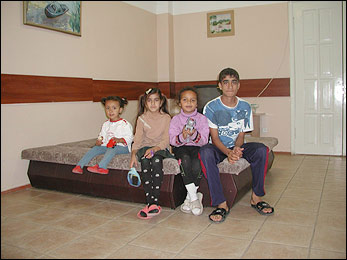
Hopefully, more of them will be able to find their feet with the EU-TACIS project, "Strengthening Asylum in Ukraine and Moldova". Some 75 percent of the project's budget is dedicated to building accommodation centres for asylum seekers. Two more centres are planned in Ukraine's Kyiv and Zakarpattia regions in 2005, while a reception centre has already been set up in Moldova.
The remaining 25 percent of the project's funds goes to material assistance to the most vulnerable asylum seekers and refugees, technical and material assistance to the asylum authorities, training these authorities and non-governmental organisations, well as public awareness activities.
By Natalia Prokopchuk
UNHCR Ukraine



